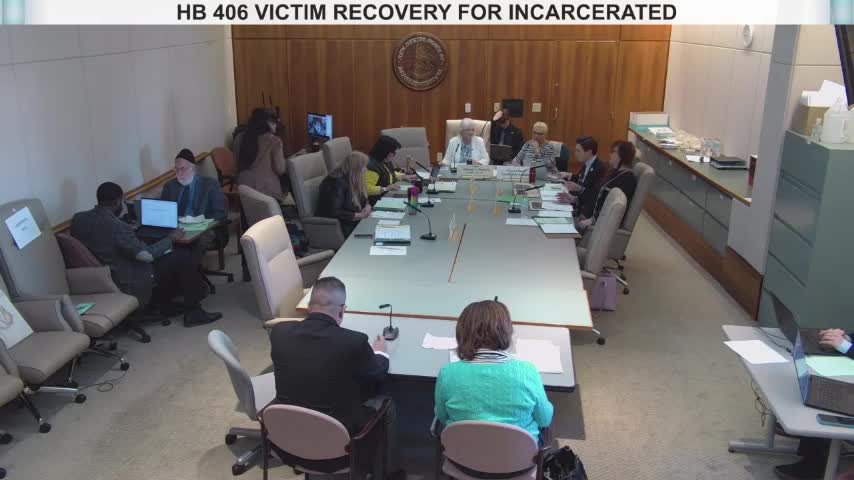Committee advances bill to extend victims' reparations to incarcerated people
Get AI-powered insights, summaries, and transcripts
Subscribe
Summary
House Bill 406 would allow victims of crime who were incarcerated at the time of victimization to apply for compensation from the Crime Victims Reparation Commission; the committee gave the bill a due‑pass recommendation after testimony from the commission and victim‑service providers.
Representative Herndon presented House Bill 406, which would amend the Crime Victims Reparation Act to allow incarcerated persons who are victims of crime to access compensation through the Crime Victims Reparation Commission (CVRC).
Frank Zubia, director of the New Mexico Crime Victims Reparation Commission, told the committee the commission provides compensation and also administers funding to roughly 92 victim‑service programs statewide. He said the change would align New Mexico with practices in other states and recognized national guidance that “a state may not deny compensation because of the victim’s or survivor’s incarceration, probation, or parole status.”
Alexandria Taylor of the New Mexico Coalition of Sexual Assault Programs and other advocates told the committee the change would create access to resources for people who are “most at risk” and cited high victimization rates among people who have been incarcerated.
Lawmakers asked about eligibility, verification and financial impacts. Zubia said other states that allow incarcerated persons to apply reported fewer than 1% of total applicants were incarcerated people; he also said New Mexico’s federal VOCA funding has declined substantially in recent years and that state appropriations have been used to fill gaps. Zubia told the committee the commission typically receives a 75‑cent federal match for every state dollar expended.
Committee members also asked how the commission verifies incidents that occurred while a person was incarcerated; Zubia said applications may be supported by licensed medical or mental‑health providers or documentation from the institution, and that the commission is a payer of last resort.
After discussion and public support testimony, the committee recorded a due‑pass recommendation for House Bill 406 by a 5‑1 vote.
The bill does not include an immediate appropriation for expanding eligibility, and witnesses told the committee the commission is monitoring funding availability; the committee and analysts are expected to track fiscal implications as the bill proceeds.
